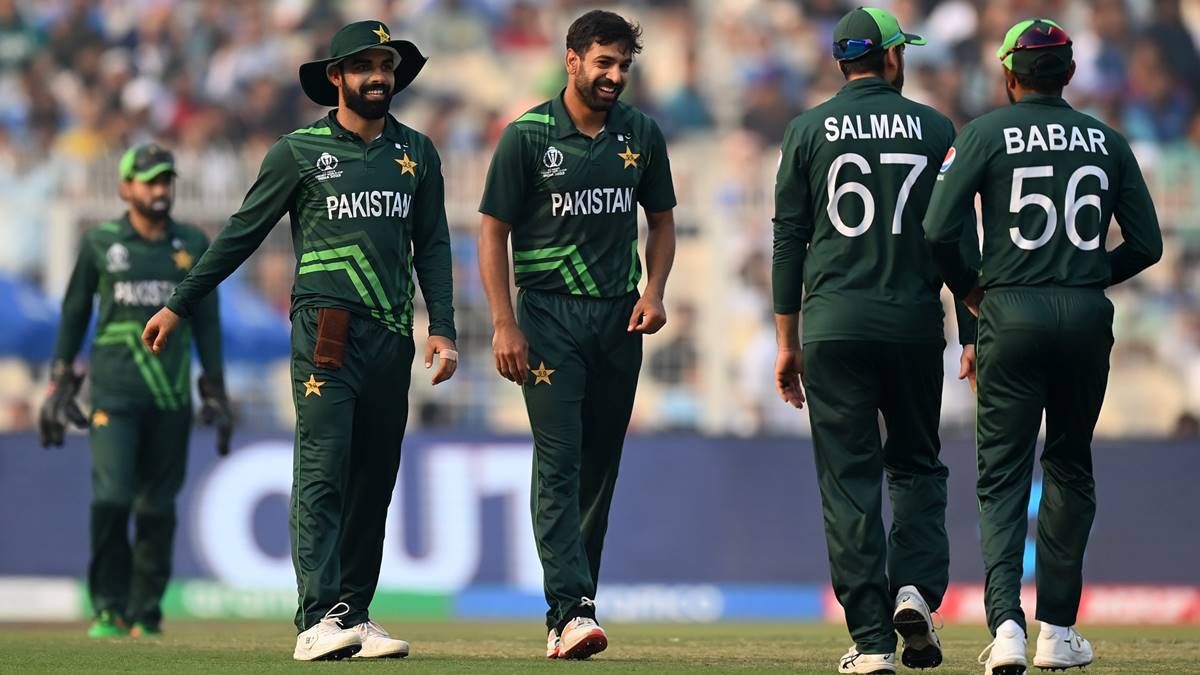England Beats South Africa in the first semi final of champions trophy 2013 by 7 wickets with 75 balls remaining, at The Oval racing towards the final of the ICC Champions Trophy 2013.
Report:
South Africa had succumbed to swing bowling on a muggy morning, but the challenge for England’s batsmen was largely a mental one. They had to survive the seductive prospect of a match that appeared already won, but was not; placid batting conditions, but a pitch which was scrubby enough to offer South Africa a semblance of hope; a voice at the back of their mind that warned them many semi-finalists had made a mess of gaping opportunities in the past.
England had everything going for them from the moment they won a favourable toss. But the prospect of a Champions Trophy final in front of their own supporters was not the sort of task which, initially at least, could be approached with equanimity. The danger was that such a manageable target would mess with their minds.
South Africa’s captain, AB de Villiers, knew that. He shuffled his bowlers impatiently, looking for the magic trick, maintaining ring fields, determined not to allow England’s batsmen to settle. Seven bowlers were given an airing by the 14th over.
None looked as if they were about to tear through England’s card, but by the 11th over, both England openers had departed, Alastair Cook to a bottom edge against Chris Morris as he flipped towards the leg side, Ian Bell opening the face to a length ball and caught at the wicket.
After Jonathan Trott and Joe Root came a middle order more designed for their explosive qualities than their resilience and a tail weakened by the absence of Tim Bresnan and Graeme Swann. Trott and Root calmed the situation, although Root was dropped on 16, a challenging chance to de Villers’ left as Morris found an inside edge.

Trott’s rate of progress is constantly pored over, his displays routinely regaled by some, condemned by others. No England supporter was carping now as he set out his stall. Let me watch in peace, they urged him, build your bubble, do it your way. South Africa wanted his wicket more than any other, but midway through the innings, Trott and Root, one placid, the other full of vim, had guided England within 71 runs of victory.

An enterprising ninth-wicket stand of 95 between David Miller and Rory Kleinveldt at least gave South Africa an illusion of hope, but the odds remained heavily stacked in England’s favour midway through the Champions Trophy semi-final as they contemplated a target of 176 under clearing skies.
England rampaged through South Africa’s top order on a muggy bowling morning at The Oval. Eight wickets tumbled for 80 as they threatened to claim a place in the final with indecent haste. South Africa’s one consolation was that they batted deep. They at least avoided the lowest one-day score ever made at The Oval batting first, New Zealand’s 158 against West Indies in 1975.
In distress, they immediately took the batting Powerplay, which Miller greeted by smashing Steven Finn over long-on for six. Miller unveiled his T20 one-legged slash over point, Stuart Broad disappearing for six more, and Kleinveldt slugged away when Alastair Cook finally felt obliged in the 30th over to introduce his weaker bowlers in tandem.

Broad finally ended the recovery with successive short balls to dismiss Kleinvedlt and Lonwabo Tsotsobe, first ball, with Jos Buttler finishing with six catches. The ninth-wicket stand was a South Africa record in ODIs, but without Dale Steyn and with the pitch favouring batsmen more by the minute, South Africa still faced a monumental task.
South Africa sought to respond aggressively to England’s swing-bowling threat from the outset, as if 300-plus and the sooner the better, was essential, but it was a skittish approach as England’s bowlers held sway. Critically, they lost their most influential batsman, Hashim Amla for a single and the reverberations of that were felt deep into the order.
But this was not just a story about quick bowling. South Africa were so destabilised that a few overs of intelligent but far from unplayable offspin by James Tredwell caused further havoc. Tredwell, who was substituting for Graeme Swann, had 3 for 19 in his seven overs as well as causing the downfall, run out, of Ryan McLaren.
England were led by the connoisseur of swing bowling, James Anderson, whose opening spell of 2 for 11 was extended to seven overs as his captain, Cook, sought to break South Africa early while the conventional swing persisted. The unusual sight of a white Kookaburra ball swinging was not one to waste.
But, even in the early overs, England were planning ahead for the possibility of reverse swing on a dry square later in the day. Broad began to bowl cross seam, to encourage wear on the ball, as early as the 10th over – and it brought him a wicket, too, as the South African captain, AB de Villiers was out without scoring, lashing at a wide one which did not bounce as much as he anticipated and caught at the wicket off an under-edge.
Wickets in the first two overs of South Africa’s innings got England moving. Anderson can cut a serious, brooding figure at times, but the closeness of the morning had left him full of smiles before the start. He removed Colin Ingram for nought with his fifth ball, first setting him up with an outswinger and then producing the inswinger to trap him in front.
Finn has been stalking around the Champions Trophy, none too happy about his omission from the side, but Tim Bresnan’s absence, to be with his wife Hannah with their baby imminent, gave Finn his first appearance of the tournament. Cook gave him the new ball and challenged him to channel that anger and his fourth delivery brought England the prize wicket of Amla.
Amla’s twirly backlift was followed by a twirly thought process as Finn left him in two minds about whether to withdraw from an outswinger and the result was a good catch off the toe of the bat to Buttler.
Peterson’s appearance at No. 3 encapsulated South Africa’s confusion. Was he a pinch hitter in inappropriate conditions, or an attempted protector of the middle order? If his left-handedness was perceived as an advantage, Anderson revels against left-handers when the ball is swinging. It was an unconvincing ploy.
Peterson acquitted himself better than most, taking three boundaries off a wayward over from Finn – pulling a short ball, flicking wide legside one, driving an overpitched one – before Anderson had him lbw.
But if Peterson’s presence so high in the order was dubious, JP Duminy was all at sea during his 11-ball stay. He survived a first-ball nought when he reviewed an lbw decision for Broad and was reprieved as replays showed the ball had pitched outside leg stump. He then should have fallen lbw third ball but Tredwell, with everything in his favour as Duminy was beaten on the back foot, suffered for excessive politeness and did not encourage a review. Duminy soon chopped on against Tredwell in any case.

Tredwell’s success did not end there. Faf du Plessis, who had been as secure as anyone, fell for 26 when he flashed at a quicker, flatter ball from Tredwell and was caught at the wicket.
The wicket, though, that brought hearty applause from Swann in the England dressing room will not appear against his name. It was the run out of McLaren who was so unhinged by flight and turn that he ran several paces down the pitch. Jonathan Trott, who caught the ball at first slip with Buttler already appealing alongside him, had the presence of mind to throw down the stumps to effect the run out.
England and South Africa had not met in a major ICC semi-final since the World Cup semifinal 1992, a match in which de Villiers said ended with him “crying myself to sleep.” Grown man now or not, midway through their innings, there was a chance he would be repeating the experience.
Man Of The Match:
James Tredwell for his splendid spell of 3 wickets giving away 19 runs only.
Scorecard:
Source – Cricinfo











